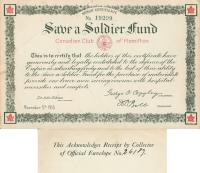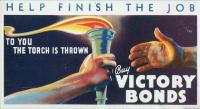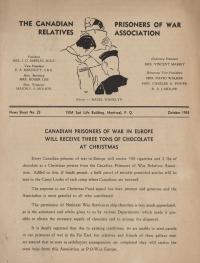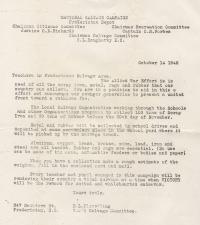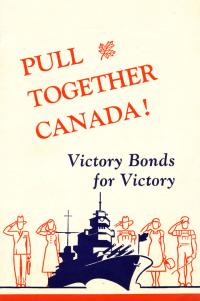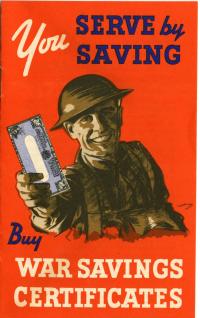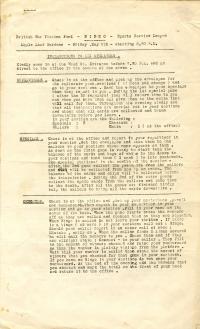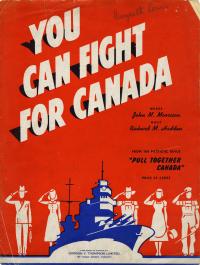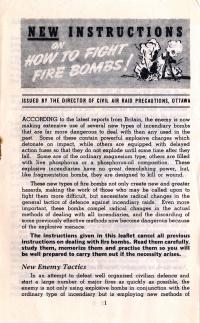Volunteering
Introductory Essay
The Save a Soldier Fund for convalescents
The Save a Soldier Fund in Hamilton, Ontario, awarded this certificate in 1916 to recognize donations to provide comforts for convalescing Canadian soldiers.
Buy Victory Bonds
This ink blotter was distributed during one of the Victory Loan campaigns of the Second World War.
Canadian Prisoners of War Relatives Association
The newsletter of the Canadian Prisoner of War Relatives Association, published monthly in Montreal.
National Salvage Campaign
As part of the 1942 National Salvage Campaign, organizers in Fredericton, New Brunswick, encouraged teachers to mobilize their students to collect scrap metal, rags, and rubber.
Pull Together Canada!
‘Pull Together Canada’ was a musical review written and performed in support of Victory Loan campaigns during the Second World War.
Serve by Saving
A pamphlet advertising War Savings Certificates, a program in which civilians purchased stamps and could redeem them after the war for a higher value.
Bingo for War Victims
A huge bingo game at Toronto's Maple Leaf Gardens in 1941 raised money for the British War Victims' Fund, organized by the Telegram. Hockey announcer Foster Hewitt was a featured guest.
Pull Together, Canada
Patterned after a successful American number, this song "brings patriotism down to brass tacks and shows, in a simple and compelling way, how every Canadian can play his part."
Be prepared for bombs
As the enemy developed new types of incendiary bombs, it was necessary to keep the public informed about new procedures - despite the fact that a fire raid on Halifax or Winnipeg was unlikely.
Paying for the war
During the Second World War, the federal government hope to run the war on a pay-as-you-go basis - with funding provided by Canadians themselves, using instruments such as War Savings Certificates.

